Contact BioSolutions aims to restore balance in the environment by creating products that focus on improving soil microbiology while controlling unwanted plant growth.
Tropical soda apple TSA (Solanum viarum), is an aggressive, prickly, perennial shrub, invading open to semi-shaded areas, particularly pastures and riparian zones, also forests, roadsides, recreational areas, and horticultural and cropping areas. TSA is a problem because it reduces biodiversity by displacing native plants and disrupting ecological processes. While the TSA foliage is unpalatable to livestock, reducing carrying capacities, cattle eat the fruit and spread viable seeds in their manure. The TSA’s thorny thickets can create a physical barrier for animals preventing access to shade and water. Additionally, TSA is a host for many diseases and pests of cultivated crops, and it contains solasodine which is poisonous to humans.
A few uncontrolled TSA plants can form a large sized thicket in a relatively short period of time 6, with each plant producing 150 fruit containing 45 000 seeds each year. Some conventional herbicides will kill TSA, but do not demonstrate any affect on the seeds of maturing seeds. kill the seeds inside the fruit. This is where Contact BioSolutions FireHawk Bioherbicide differs from conventional herbicides. In the South East portion of the US, TSA has infested over a million acres in the last 5 years.
Some of the TSA plants received a 2nd spray to cover parts of the plant that were missed in the initial application. It is difficult to get complete coverage when they are in patches but a touchup spray a day or 2 later finishes the job. This is also part of the seed germination analysis study.
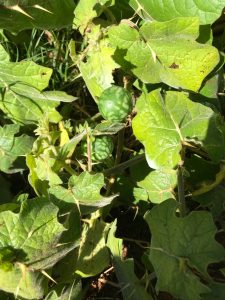
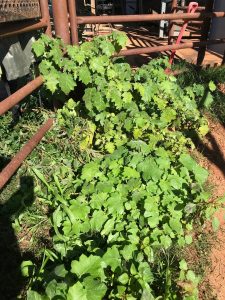
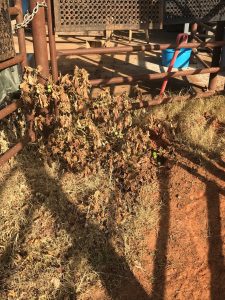
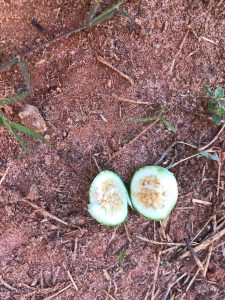
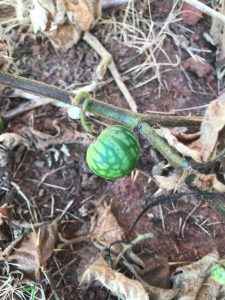
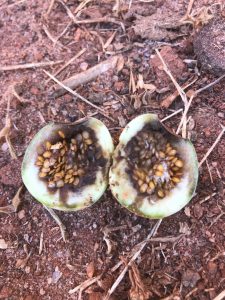
FireHawk Bioherbicide has proven successful in the management of invasive weed species.
